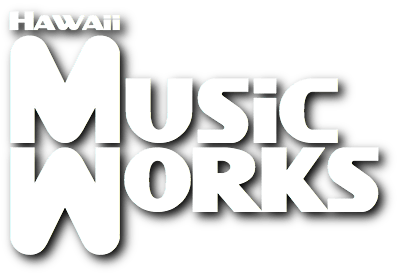SHOULD YOU ENROLL YOUR CHILD IN GROUP OR PRIVATE MUSIC LESSONS?
Hawaii MusicWorks
If your child is learning a new instrument, you may be debating signing them up for group-based or private music lessons. Each approach has a distinct set of advantages, but choosing the one that will best support their musical development depends on various factors. The following guide explains more about the characteristics of these two teaching methods and how to get your young musician off to a good start.
Group Lessons
- Kids are usually more comfortable in these settings because they've become accustomed to them through school. Thus, learning an instrument with peers of similar skill levels helps them feel less pressured and more willing to take risks and experiment.
- Social Interaction: Group lessons provide an opportunity to interact with other students and learn from their experiences.
- Group activities encourage bonding between participants and provide opportunities for shared learning, mutual support, and fun social experiences.
- These lessons teach students the basic skills necessary for playing, such as understanding rhythm patterns for guitars or drums or learning about chord progressions on the keyboard.
- If your child is interested in joining a band or an orchestra, playing in a group setting introduces them to the concept of cooperating with other aspiring musicians and following a conductor's directions.
- Motivation: The confidence they gain during these lessons can also motivate them to innovate and experiment as they advance.
However, group lessons may not be suitable for all students, as they may have different learning styles or preferences.
Private Lessons
- Customized Learning: Private lessons offer a customized learning experience tailored to the student's needs and preferences.
- Flexibility: Private lessons offer more flexibility in terms of scheduling and pace of learning.
- Individual Attention: Private lessons offer one-on-one attention from the teacher, which can be helpful in identifying and addressing specific areas of improvement.
- For that reason, private lessons are often a better choice for intermediate and advanced musicians who require individual help to master complex aspects of their instrument.
- For example, your child might struggle with a concept during their group lesson and feel left behind since the instructor focuses on the entire class.
- Similarly, an advanced student may feel unsupported if they have the skill and confidence to progress to a higher stage.
However, some students may miss the social interaction and motivation that comes with being part of a group.
Factors to Consider
- Learning Style: Consider your learning style and preferences. If you prefer one-on-one attention and customized learning, private lessons may be a better fit. If you enjoy social interaction and learning from others, group lessons may be a better fit.
- Scheduling: Consider your schedule and whether you have the flexibility to attend private lessons or if group lessons fit better with your schedule.
